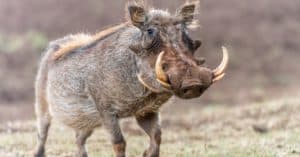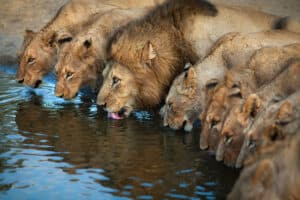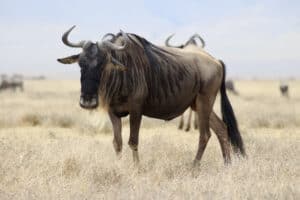Continue reading for our analysis...
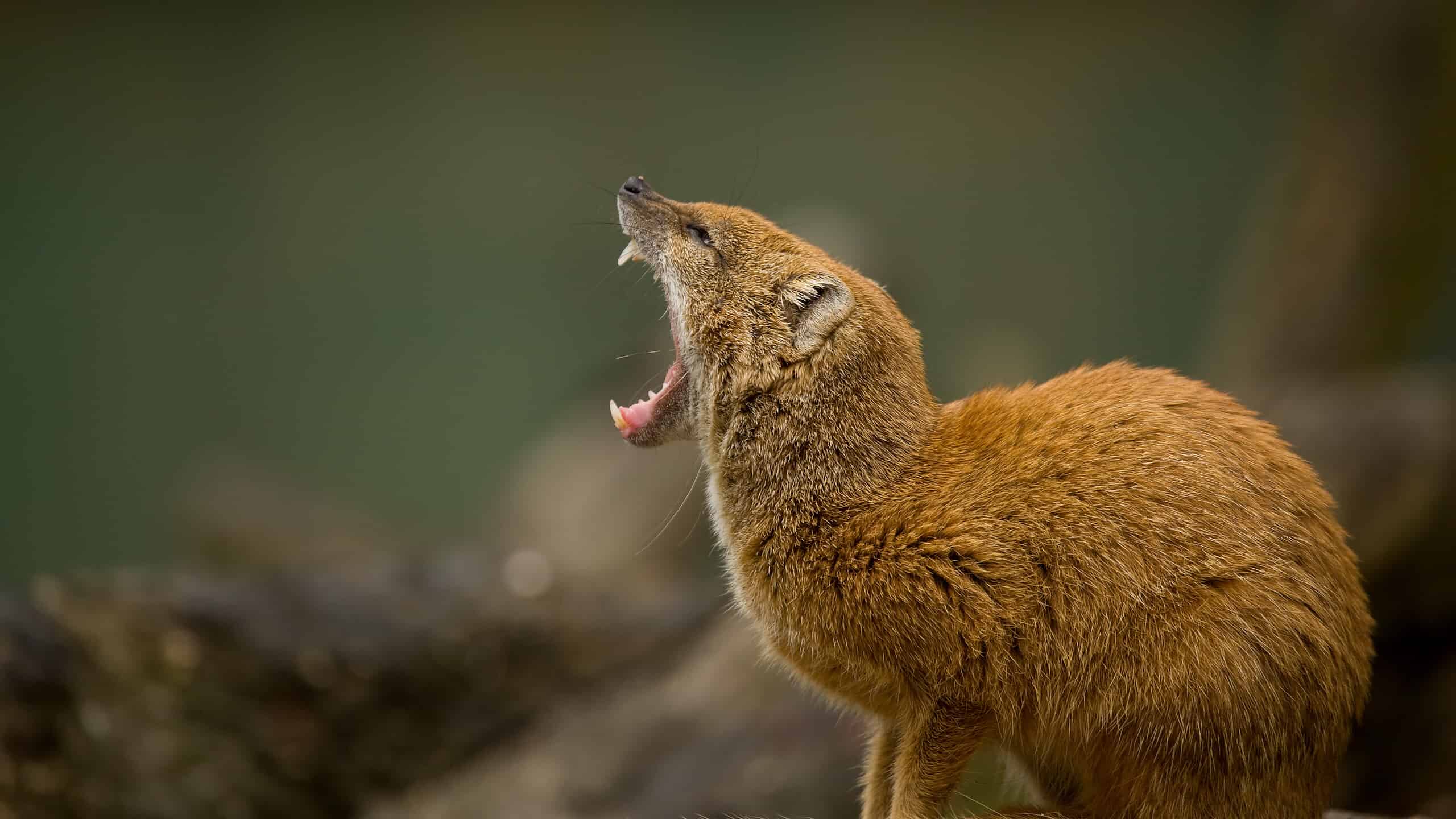
It’s incredible how relaxed these yellow mongoose are around a venomous snake. They treat this cobra with utter contempt – viewing it as prey rather than a dangerous predator. There is never any doubt about who is going to win this contest. Click below to see how the action unfolds.
Where Do Yellow Mongooses Normally Live?
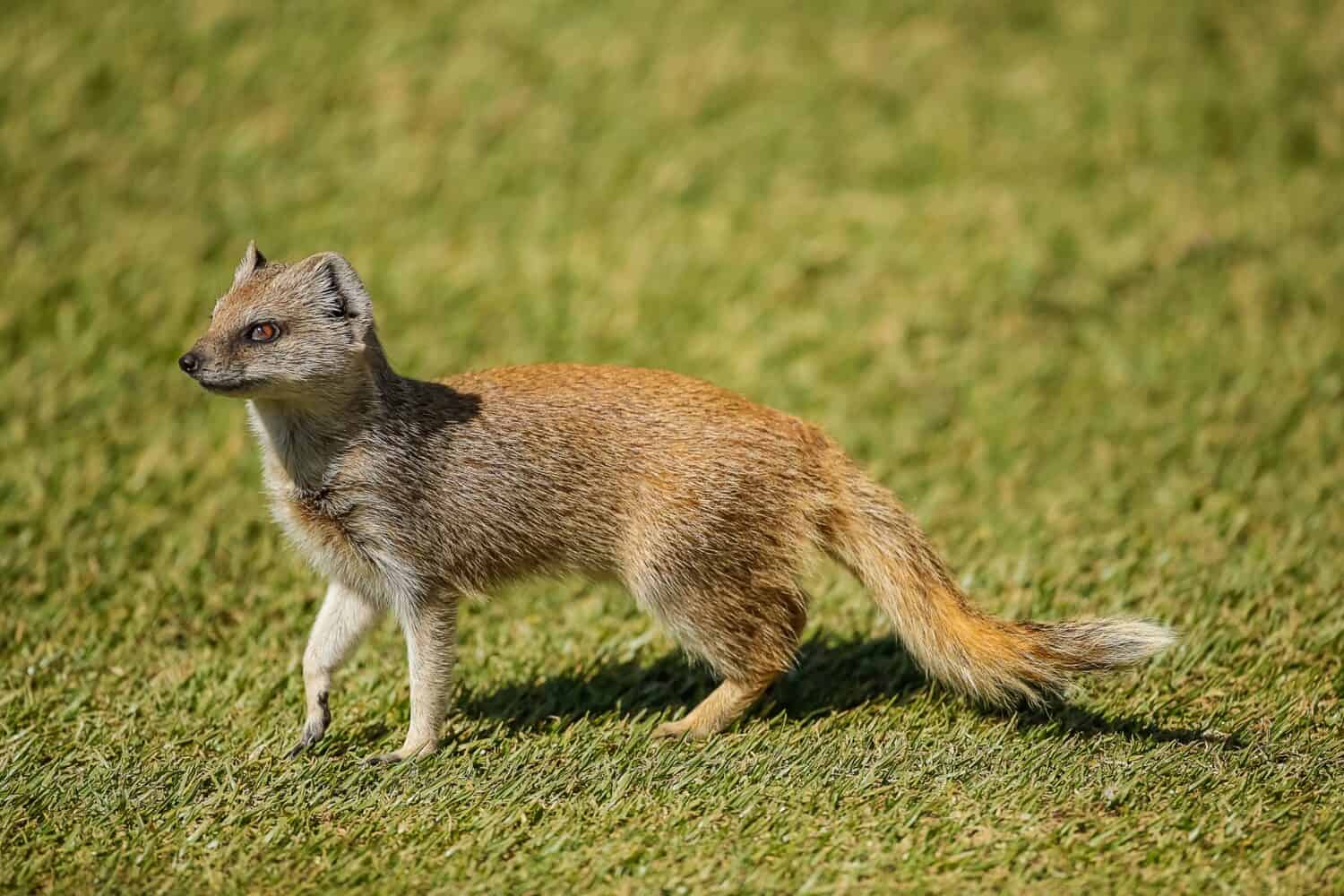
There are at least 12 subspecies of yellow mongoose.
©Tyrone Winfield/Shutterstock.com
The yellow mongoose (Cynictis penicillate) are a native species of Southern Africa where they are widely distributed. Larger populations are in Zimbabwe, Transvaal, Orange Free State, northwestern Natal, Namibia, and throughout the Cape Providence.
In terms of habitat, they like semi-arid and open areas so you are most likely to find them in grasslands, scrub, and semi-desert scrub. You are very unlikely to find them in forests, in the desert, or on the slopes of mountains.
What Does Yellow Mongoose Look Like?
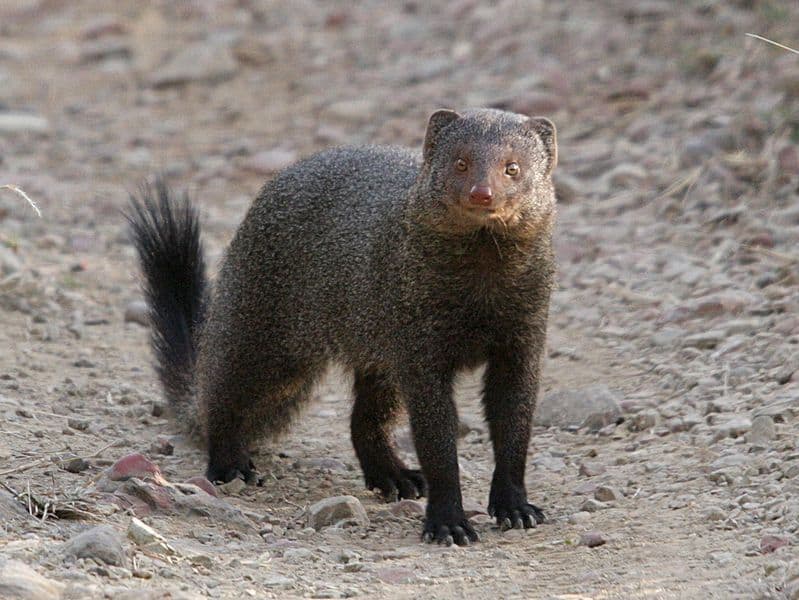
Mongoose have 12 different subspecies.
©ChrisHodgesUK / Creative Commons – Original
Not all yellow mongooses look the same because there are at least 12 subspecies. Some subspecies are separated geographically.
They all have elongated bodies, a bushy tail, and rounded ears which makes them look a little like a fox. These guys have five digits on the forefeet and four on the hind feet.
What Does Yellow Mongoose Normally Eat?
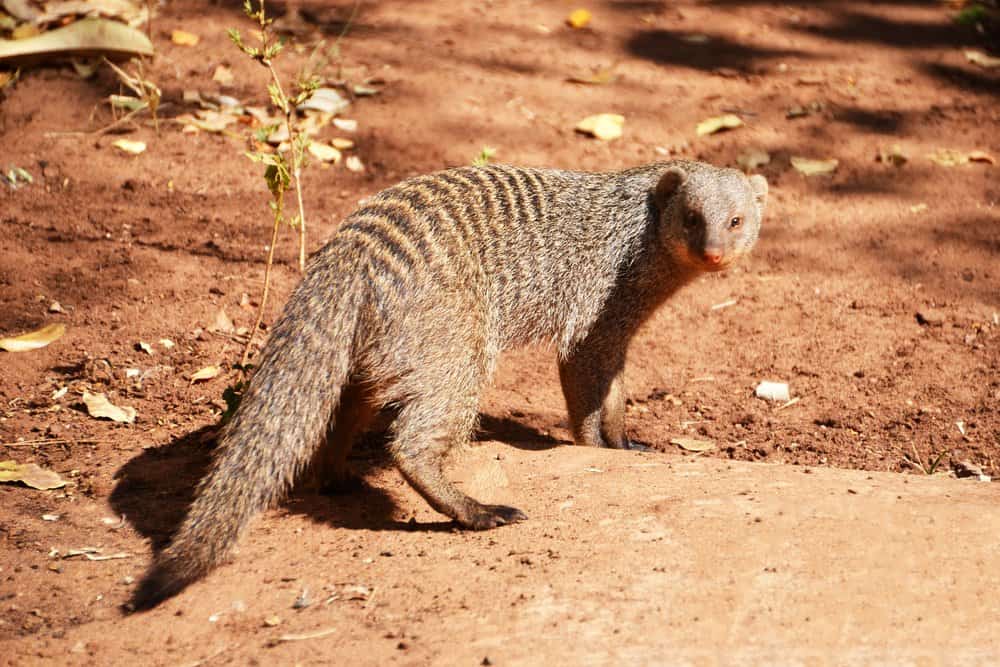
Mongooses eat mainly insects.
©Oscar David Toledo Marin/Shutterstock.com
Their diet is mainly insects. This includes adult and larval beetles, termites, locusts, and ants. However, if they get the opportunity they will not turn down other prey. So, you may spot them eating mice, birds amphibians, and reptiles including snakes. They are quite good at pinching hen’s eggs from human settlements.
The good news is that they can help to control insects and rodents. The bad news is that they can carry rabies!
Are Mongooses Immune to Snake Venom?
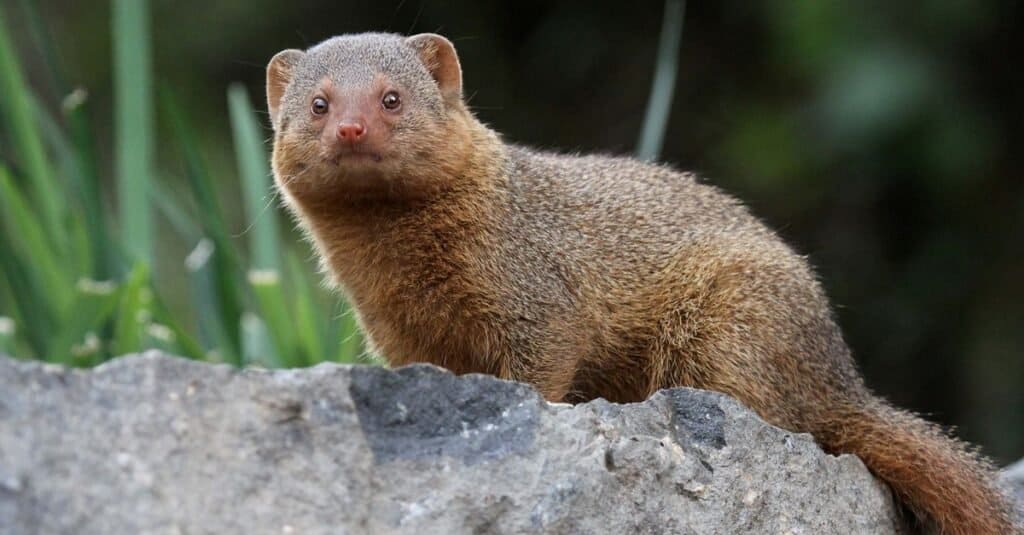
Mongooses are noted for their audacious attacks on highly venomous snakes, such as king cobras.
©steve bushman/Shutterstock.com
The mongoose in this clip seems to be remarkably unconcerned about how close they are to this snake. It is a widely held misconception that mongoose are immune to snake venom but that is only partly true. They do lack the receptors that some elements of the venom need to latch onto to be effective. Therefore, they are not as sensitive to it as many other animals but that is not the same thing as being immune.
Almost as important is their ability to ‘fuzz’ up their thick hair which makes it hard for the snake to bite. Also, they leap around which makes it tricky for the snake to aim a strike!
Is It Normal Behavior for a Mongoose and Cobra to Fight?
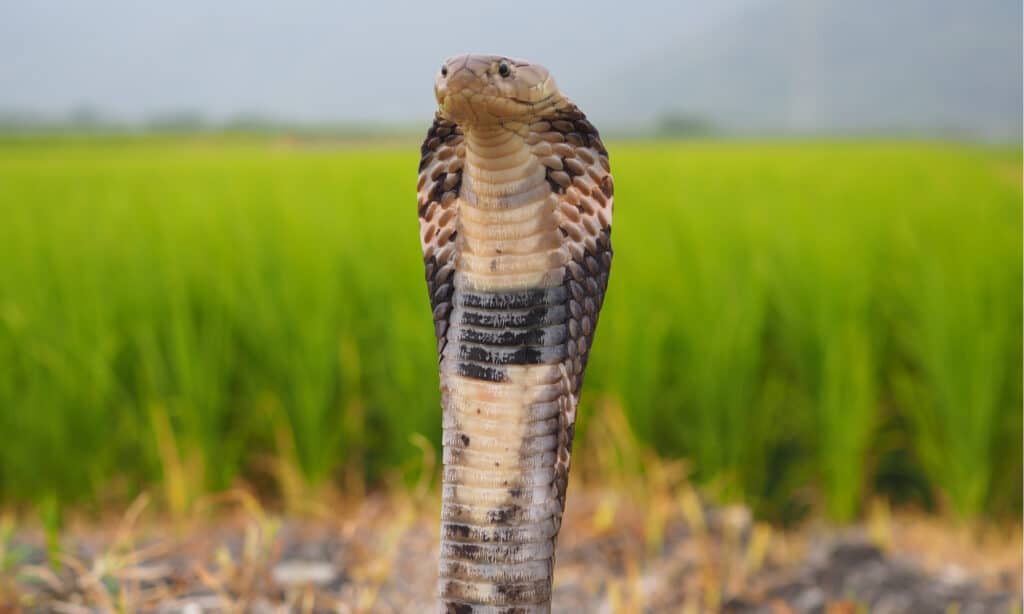
Mongoose and cobras do fight, but it isn’t common. Cobras generally avoid these creatures.
©FunnyDive/Shutterstock.com
The Indian mongoose is famous for being good at battling and defeating dangerous snakes such as cobras. They can do this because they’re fast, flexible, and clever. However, they usually stay away from the cobra species particularly and aren’t known for eating them.
Further, the mongoose can survive the deadly bite of a venomous snake, and it wins about 75 to 80 percent of its battles against cobras. Finally, cobras are quite afraid of mongooses and often try to avoid facing these small but powerful opponents.
Thank you for reading! Have some feedback for us? Contact the AZ Animals editorial team.




